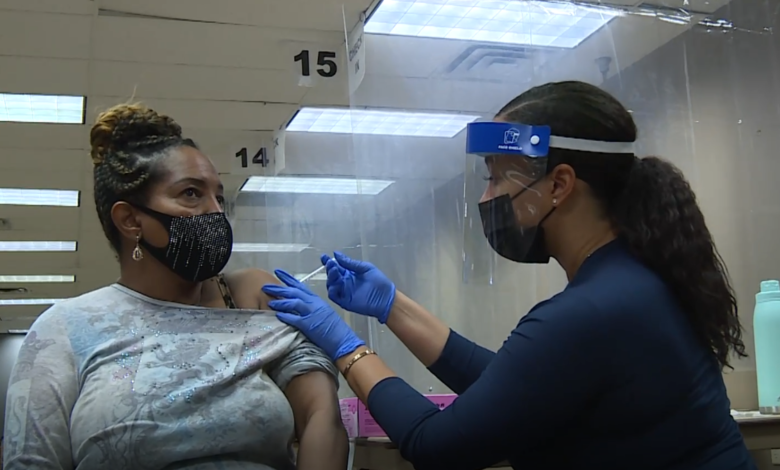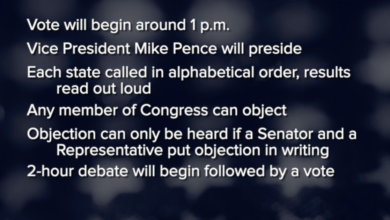
Can your employer require you to get the COVID-19 vaccine?An attorney WLWT talked with said yes.Cleveland-Cliffs, Inc., which acquired AK Steel, said it expects employees to do so but it isn't mandating it.Still, some employees told us they feel they have no choice.This is a tough debate likely to happen in many workplaces.An employee from Cleveland-Cliffs said he doesn't feel there's any option when it comes to the vaccine.Some worry they could be fired for not getting the vaccine.An attorney told us there are several things to consider on both sides."Employers are facing this issue on a daily basis. We've been asked about it a lot," Attorney Jade Robinson said.For some of us, returning to work may take more than a keycard.We went to Robinson, with Faruki PLL, to find out if your boss can require a COVID-19 vaccine."Yes. Employers can require their employees to be vaccinated. Specifically, private employers, so that differs if you work for the state of Ohio," she said.An employee with Cleveland-Cliffs sent us a memo from April.The memo, which was confirmed by a spokeswoman, said that those not vaccinated, "will not be allowed back in the office" and that, "it is my expectation that you are vaccinated and you will be back with us."The employee said they feared no shot means no job."I would say, I, personally, I agree with the employee that it reads like a mandate to me," Robinson said.A Cleveland-Cliffs spokeswoman told us vaccination is not mandated."This internal communication speaks for itself and, as you can read from the message, there is nothing there that could be even remotely construed as a threat of firing people that are not vaccinated. That being said, for everyone's safety across the company, all Cleveland-Cliffs' employees are expected to get vaccinated," Corporate Communications Director Patricia Persico said.Robinson said there are exceptions for those with disabilities or sincerely-held religious beliefs.She told WLWT accommodations can also be made for employees who choose not to be vaccinated.Those include wearing a mask, social distancing and possibly working in a different area, although vaccinated employees would not have to do so.She also said your workplace can ask for proof but it isn't entitled to other information, including additional medical information.Robinson added that even without full approval, your employer can require the shot."The EEOC has stated that they don't view a difference right now in the emergency approval," she said.Still, she said companies need to be fair to each person and their specific situation."It is definitely a hot topic right now and I think it's only going to develop further," Robinson said.Robinson said employers should strongly recommend the vaccine instead of mandating it.She also said employers should consult legal counsel before they implement anything because it is all truly a case-by-case situation.For employees, she said they would need something to happen to them in order to seek legal action.Robinson also wrote an article about this topic for the Ohio Bar Association and you can read that here.
Can your employer require you to get the COVID-19 vaccine?
An attorney WLWT talked with said yes.
Cleveland-Cliffs, Inc., which acquired AK Steel, said it expects employees to do so but it isn't mandating it.
Still, some employees told us they feel they have no choice.
This is a tough debate likely to happen in many workplaces.
An employee from Cleveland-Cliffs said he doesn't feel there's any option when it comes to the vaccine.
Some worry they could be fired for not getting the vaccine.
An attorney told us there are several things to consider on both sides.
"Employers are facing this issue on a daily basis. We've been asked about it a lot," Attorney Jade Robinson said.
For some of us, returning to work may take more than a keycard.
We went to Robinson, with Faruki PLL, to find out if your boss can require a COVID-19 vaccine.
"Yes. Employers can require their employees to be vaccinated. Specifically, private employers, so that differs if you work for the state of Ohio," she said.
An employee with Cleveland-Cliffs sent us a memo from April.
The memo, which was confirmed by a spokeswoman, said that those not vaccinated, "will not be allowed back in the office" and that, "it is my expectation that you are vaccinated and you will be back with us."
The employee said they feared no shot means no job.
"I would say, I, personally, I agree with the employee that it reads like a mandate to me," Robinson said.
A Cleveland-Cliffs spokeswoman told us vaccination is not mandated.
"This internal communication speaks for itself and, as you can read from the message, there is nothing there that could be even remotely construed as a threat of firing people that are not vaccinated. That being said, for everyone's safety across the company, all Cleveland-Cliffs' employees are expected to get vaccinated," Corporate Communications Director Patricia Persico said.
Robinson said there are exceptions for those with disabilities or sincerely-held religious beliefs.
This content is imported from Twitter.
You may be able to find the same content in another format, or you may be able to find more information, at their web site.
She told WLWT accommodations can also be made for employees who choose not to be vaccinated.
Those include wearing a mask, social distancing and possibly working in a different area, although vaccinated employees would not have to do so.
She also said your workplace can ask for proof but it isn't entitled to other information, including additional medical information.
Robinson added that even without full approval, your employer can require the shot.
"The EEOC has stated that they don't view a difference right now in the emergency approval," she said.
Still, she said companies need to be fair to each person and their specific situation.
"It is definitely a hot topic right now and I think it's only going to develop further," Robinson said.
Robinson said employers should strongly recommend the vaccine instead of mandating it.
She also said employers should consult legal counsel before they implement anything because it is all truly a case-by-case situation.
For employees, she said they would need something to happen to them in order to seek legal action.








